5 Things Millennials are Supposedly Killing… Including the Insurance Industry
Why Millennials are Ruining Everything According to Everyone

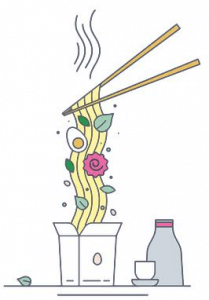
Lunch Enthusiasts Tell Millennials to Pack it in
Pitchforks and torches are at the ready to fend off the millennials destroying the sanctity of lunch. Well, not really – but, some journalists are none too happy that millennials aren’t visiting more restaurants during their lunch hours.[1]

Considering one recent comment regarding how much easier it would be to buy a house if millennials just stopped buying sandwiches,[2] it’s fair to assume that there is just no pleasing some people.
Instead of dining out, millennials are packing their own lunches and snacks comprised of healthy, cost effective alternatives.
As it turns out, many Millennials are somewhat strapped for cash at the moment and don’t particularly want to spend their salary on daily restaurant visits. This may also be the reason why casual dining[3] is the next victim on millennials’ industry hit list.

Young People Need to Stop Wining
Millennials overall are spending more of their money on food and drink, but some have accused them of spending their money on the ‘wrong’ food and drink (everyone’s looking at you, avocado toast).[4]

In August 2017, the beer industry decided to shine a light on millennials’ obsession with rosé wine, which has apparently single-handedly caused the beer industry’s 1% drop in penetration.[5] However, the outrage doesn’t end there.
Not only are millennials crippling the beer industry by drinking more wine: more offence has been taken to see that they are buying the wrong wines!
According to one wine expert, millennials are choosing exotic, reasonably priced wines over the expensive classics.[6] Does this mean that it’s only a matter of time until the noble Merlot suffers extinction? Only time will tell.
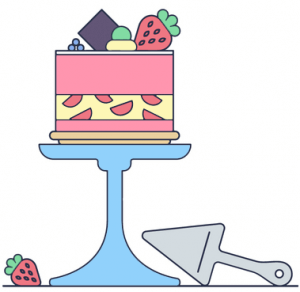
Is it Time to Throw in the Towel?
Millennials are killing napkins, according to the Washington Post. Yes, you read that right.
The paper napkin is officially not cool anymore, and uncouth millennials are to blame.[7] Gone are the days of paper napkins being used at the dinner table.

Instead, you’ll find the common millennial using a paper towel at dinner, like some sort of maverick hell-bent on rewriting international consensus of what constitutes appropriate dining etiquette.
The truth of the matter, however, is that many millennials view paper napkins as simply not an economical – or an environmentally-friendly – purchase.
Kitchen roll is more versatile, cheaper and longer lasting compared to paper napkins and due to the lack of millennial dinner parties, fewer young people have a need for napkins in their lives.
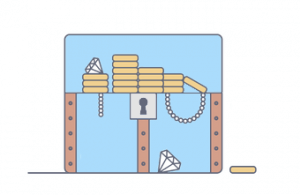
Millennials Under Pressure to Buy More Diamonds
Out of the many cases made against millennials, this accusation is possibly the most infamous, representing the peak of this media trend’s absurdity.
It all started with The Economist and a simple tweet. What started out as a story about the struggle to sell a $70 million diamond at auction somehow managed to tie back to millennials and their plot to ruin the diamond industry.[8]

The real reason behind diamonds’ dipping sales, however, could all be found in the brilliant Twitter responses.[9] Everything from the cost to the lack of options could explain why they aren’t interested in diamonds.
In fact, more young people are choosing cheaper, more colourful gemstones as alternatives that do the same job as diamonds for less than half the cost.
Still, despite the issue being laid to rest quite quickly, a year later there still seems to be some lingering resentment for the generation that forced Tiffany & Co. to get an Instagram account.[10]
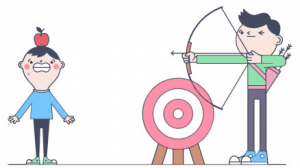
Young People Refusing to Take Cover
While the insurance industry has been slightly less vocal about their upset, they too are feeling the sting of millennials’ disinterest. One article in particular hits all the nails on the head when it comes to placing the blame on the millennial stereotype.[11]

Everything from the arrogance of youth to the coddling bank of Mum and Dad is pointed at in this piece. The reality, however, is likely much closer to issues of necessity and affordability.
The need for certain types of insurance is just not there for millennials. With as few as 31% of millennials owning a property in the UK and with the average age for marriage increasing each year, protection products like Mortgage and Life Insurance align with fewer millennials’ needs.
Meanwhile, the cost and environmental impact of driving is putting millennials off owning cars, and you don’t need to buy buildings insurance if you don’t own a home.

Can We Improve Uptake of Insurance for Millennials?
While we can all probably make do without diamonds and paper napkins, insurance (and lunch) is something we shouldn’t overlook.
It’s true that certain insurance products may have less relevance for many millennials. However, there is one particular product that is exactly what millennials need: Income Protection.
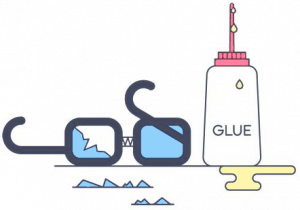
Income Protection is designed to pay out a monthly benefit if you ever find yourself out of work for any medical reason.
This could be valuable given that many under 35s struggling to keep up with their monthly outgoings and are just one missed pay cheque away from a financial crisis. Our own survey even came to reveal that 1 in 4 people have less than £100 at the end of the month, which leaves very little wiggle room if you can’t earn.
This means that a nasty fall down the stairs or a bout of back pain could mean the end of your financial independence. But an Income Protection policy will make sure that if you need to take time off work you can still cover your expenses.
According to a recent report from the Financial Conduct Authority, ideally millions of people would have some form of Income Protection.
The best part about buying Income protection when you’re young and healthy is that premiums are cheap and you can fix them at that rate for the rest of the policy.

The below premiums are all guaranteed, which means they won’t ever change from less than £25 per month. The cheapest Income Protection policy below, with Royal London, costs just over a fiver a week for long-term cover to protect against accidents and sickness.
These premiums assume you’re healthy, but most millennials, being so young, don’t have the kind of health problems associated with older clients.
Rauri Taylor
Independent Protection Expert at Drewberry
How Much an Income Protection Policy Will Cost
| Who You Are…
|
|---|---|
Age | 27 years old |
Annual Salary | £27,000 |
Smoker Status | Non-Smoker | Your Policy Terms
|
Monthly Benefit | £1,000 |
Benefit Period | Unlimited |
Definition of Incapacity | Own Occupation |
Premium Type | Guaranteed |
Cease Age | 60 years old |
Deferred Period | 8 weeks | Policy Provider
| Monthly Premium
|

| £20.83 |

| £21.94 |

| £22.30 |
Sources
[1] http://fortune.com/video/2017/03/28/millennials-are-killing-lunch/
[2] https://www.standard.co.uk/news/london/estate-agent-says-londons-millennials-should-stop-buying-sandwiches-holidays-and-nights-out-in-order-a3690481.html
[3] http://uk.businessinsider.com/millennials-endanger-casual-dining-restaurants-2017-5
[4] https://www.theguardian.com/lifeandstyle/2017/may/15/australian-millionaire-millennials-avocado-toast-house
[5] http://uk.businessinsider.com/millennials-killing-beer-with-rose-obsession-2017-8?r=US&IR=T
[6] https://www.wsj.com/articles/how-millennials-are-changing-wine-1446748945
[7] https://www.washingtonpost.com/lifestyle/home/do-you-use-paper-towels-as-napkins-at-the-dinner-table-you-are-not-alone/2016/03/25/d0d076b0-eb8c-11e5-b0fd-073d5930a7b7_story.html?utm_term=.61c8cd40bbf4
[8] http://www.economist.com/news/leaders/21701490-even-ring-finger-cannot-escape-effects-technological-change-shine
[9] https://twitter.com/i/moments/749764884984803328?lang=en
[10] https://digiday.com/marketing/now-millennials-killing-diamonds-industry-instagramming/
[11] http://time.com/money/3178364/millennials-insurance-why-resist-coverage/
- Topics
- Life Insurance
Contact Us
125-135 Preston Road
Brighton
BN1 6AF
Cookies
Drewberry™ uses cookies to offer you the best experience online. By continuing to use our website you agree to the use of cookies including for ad personalization.
If you would like to know more about cookies and how to manage them please view our privacy & cookie policy.









